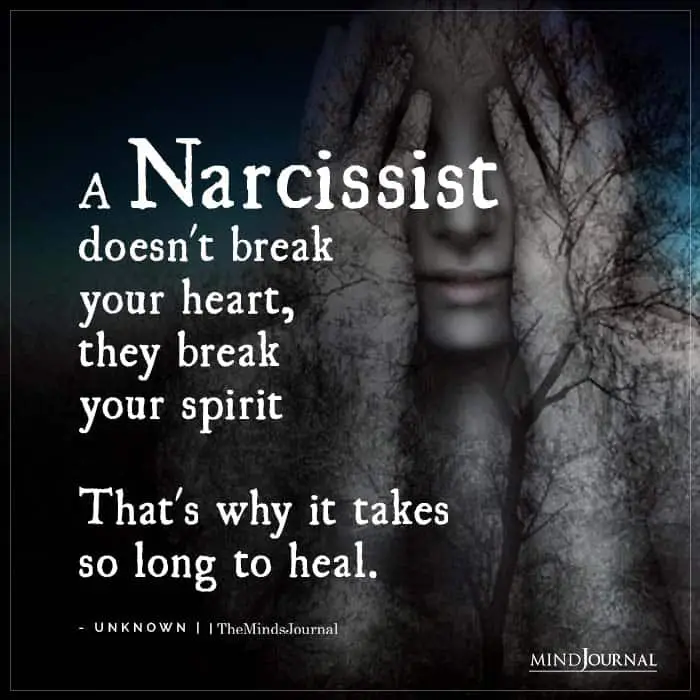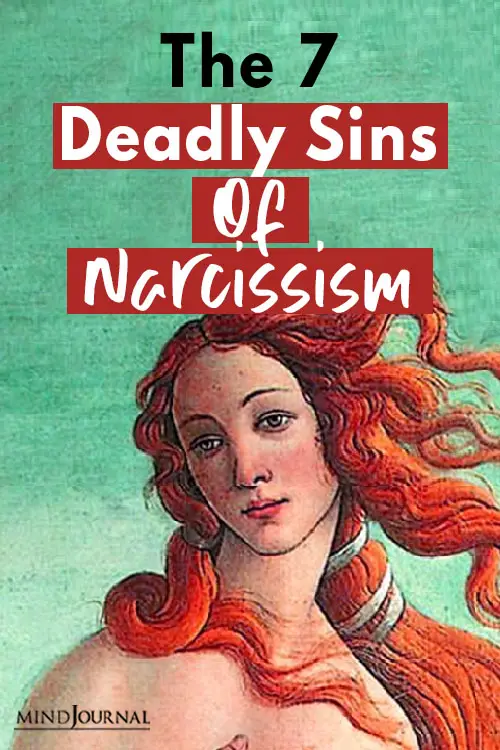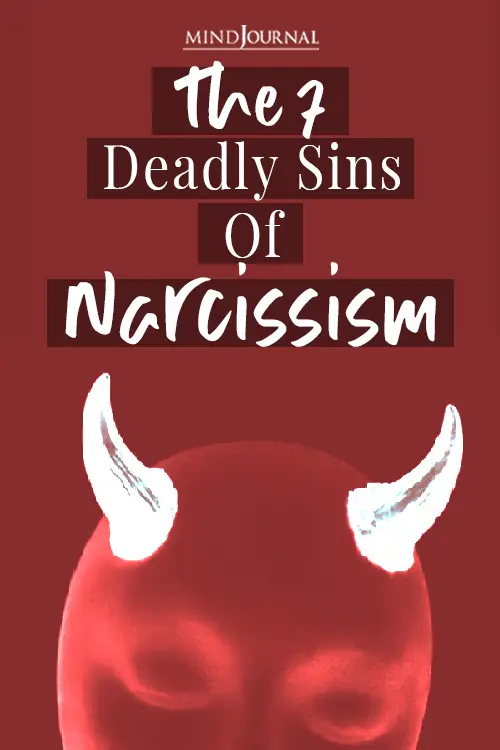If you have ever come across a narcissist and have been subjected to their vile narcissism, then you would surely know about the seven deadly sins of narcissism.
Anyone who has been in a relationship with a person with Narcissistic Personality Disorder would know how utterly selfish and ruthless they can be.
They want the other person to be completely under their control and do as they say. For them, they are the be-all and end-all of everything, and the whole world revolves around them. What they think, what they say, and what they want are of utmost importance. The driving factors behind this kind of attitude are varied.
The seven deadly sins of narcissism were initially put forth by renowned psychotherapist, and clinical social worker, Sandy Hotchkiss. According to her, these seven characteristics perfectly described how a narcissist truly is.
Related: 3 Ways Narcissists and Sociopaths Manipulate To Gain Control Over You
The 7 Deadly Sins Of Narcissism
1) Shamelessness.
It is not like they are somehow not able to relate shame to their actions. It is not like shame is entirely absent from their life. Just that they are unable to process this shame in a manner that is healthy and organic.
Not expressed or vented in the proper manner, it just begets more problems and thus starts the endless loop of despicable acts and the inability to process them and thus more such acts in frustration.
2) Self-absorbed.
This is one of the worst characteristics of a narcissist.
Narcissists truly believe that they are above and beyond themselves. In psychological terms, this is known as magical thinking.
They have such a distorted version of themselves inside their head that they can’t even process their own shortcomings. Instead, they project these on other people.

3) Conceited.
If they ever get off their high horse, they start feeling restless and are in great unease. The only way for them to feel better about themselves is to degrade and debase someone else.
Safe to say, that being conceited is one of the really bad habits of a narcissist and one of the worst 7 deadly sins of narcissism?
Related: 5 Types of Narcissistic Blame Shifting
4) Envy.
To bolster their self-esteem, narcissists attempt to elicit envy from others, believing that it proves their superiority. However, this behavior actually reveals their own insecurities, as they project their doubts and fears onto those around them.
By resorting to attention-seeking behaviors, they show that they are nothing but scared and insecure and the only way they can feel good about themselves is by pulling other people down.
5) Entitled.
Another one of the worst sins of narcissism is the sense of entitlement.
Because they are disillusioned into thinking they are somehow superior to everyone else, they also expect the world to treat them as such. As long as everyone is ready to be on their beck and call they are happy.
As soon as someone digresses, they immediately point them out as a ‘difficult’ or unreasonable person. They take non-compliance as an attack on their supposed superiority. This threatens their bubble of illusion. This kind of behavior might also trigger their narcissism-driven rage.
6) Exploitative.
This is the reason they are the worst kind of people to be in a relationship with. They think the world of themselves and expect you to do the same. Your worth and existence are solely limited to how useful you are to them.
Their abuse starts with just mental abuse but can progress to other forms as well. They do not care about the happiness or even the mental peace of the other person. The only thing that matters to them is that everything should be as it suits them.
Related: 19 Things A Narcissist Says and What They Really Mean
7) No boundaries.
They feel they have a freehold on the other person and their life. No matter how many times someone might tell them to give them space, or stay away from them, narcissists will continue to violate every boundary.
They do not care what you want, all they care about is themselves, and what they want to do to make themselves feel good and satisfied.
As mentioned above, the existence of anyone close to them is important only up to the point where it can be used to serve them in one way or the other.
So, have you ever been subjected to these seven deadly sins of narcissism? What other characteristics of a narcissist have you encountered? Let us know your thoughts in the comments down below!
The Minds Journal Articles Volume -1 is Copyright Protected vide Regd.# L-103222/2021













Leave a Reply
You must be logged in to post a comment.